The very soul of the Caribbean is under siege with the region teetering on the brink of a profound crisis, one that threatens the very fabric of our educational system.
Our dedicated teachers, the pillars of our education system, the torchbearers and backbone of our youth’s future, are departing in the Caribbean in droves, migrating to countries like the United States, Canada, and the United Kingdon at an alarming rate, thus creating a vacuum that could have dire consequences for generations to come.
This isn’t just a migration; it’s an exodus, a catastrophic brain drain that threatens to leave our classrooms desolate and casting a shadow over our collective future, and we just cannot just sit back and allow this to spiral out of control any longer.
What’s at stake? The dreams, aspirations, and the very potential of our youth – The heartbeat of our next generation.
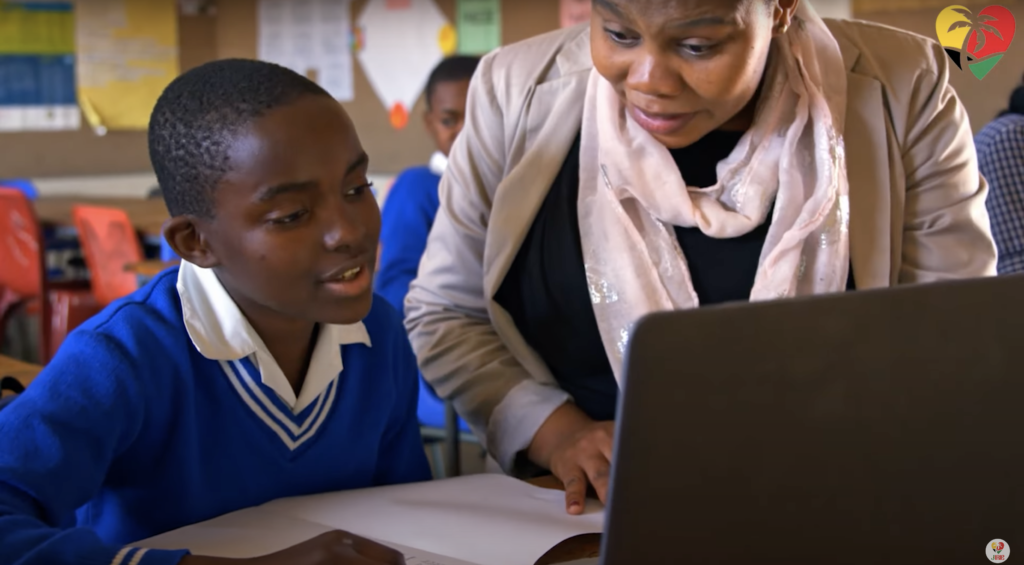
However, all is not lost. Amidst this encroaching shadow of darkness and despair, there’s a glimmer of hope.
In this article, not only will we unveil the magnitude of this crisis, but more importantly, we’ll illuminate the path forward, presenting actionable solutions to protect and safeguard our youth and ensure the Caribbean’s vibrant future.
Read this article till the very end, as this is more than just information—it’s a clarion call, a battle cry for the heart and soul of the Caribbean.
And if this message resonates with you, if you sense the gravity of our plea, if you feel the urgency of this call, share this article and the video linked below. The fate of our beautiful Caribbean islands hangs in the balance.
As the new academic year unfolds, this deeply concerning trend casts a long shadow over the region.
Understanding The Exodus
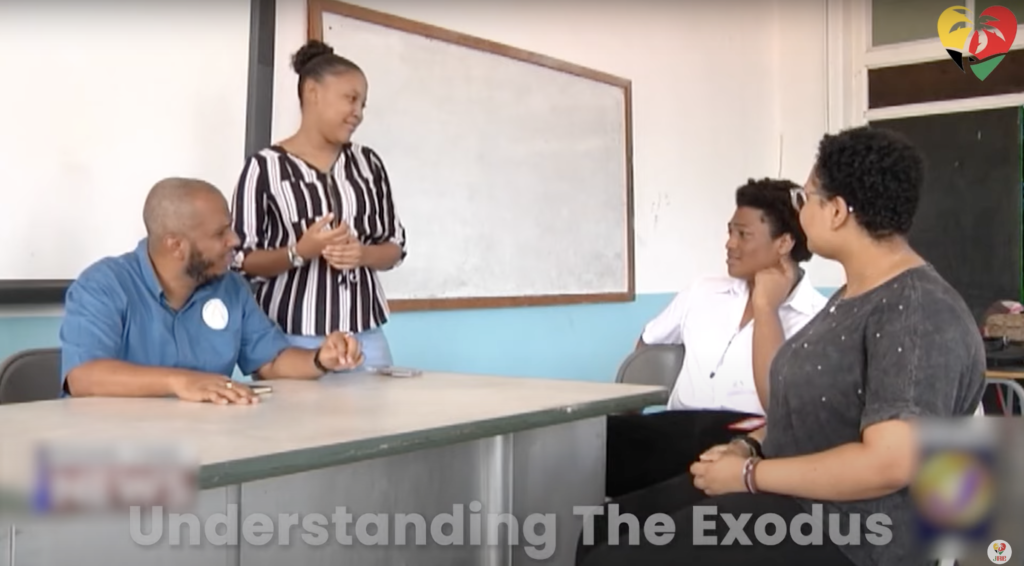
Recent statistics, especially from Jamaica, a microcosm of the broader Caribbean challenge, paint a grim, alarming picture of the broader Caribbean challenge. Since the onset of this year alone, Jamaica has witnessed the departure of approximately 430 educators who have left the island. This follows the staggering 1,538 who made the same decision in the previous year.
But these numbers, as alarming as they are, are just the tip of the iceberg. The mass exodus of our educators is not merely a migration trend but a reflection of deeper systemic issues that span the entire Caribbean region and demand immediate attention and collective introspection and action.
Root Causes of the Migration
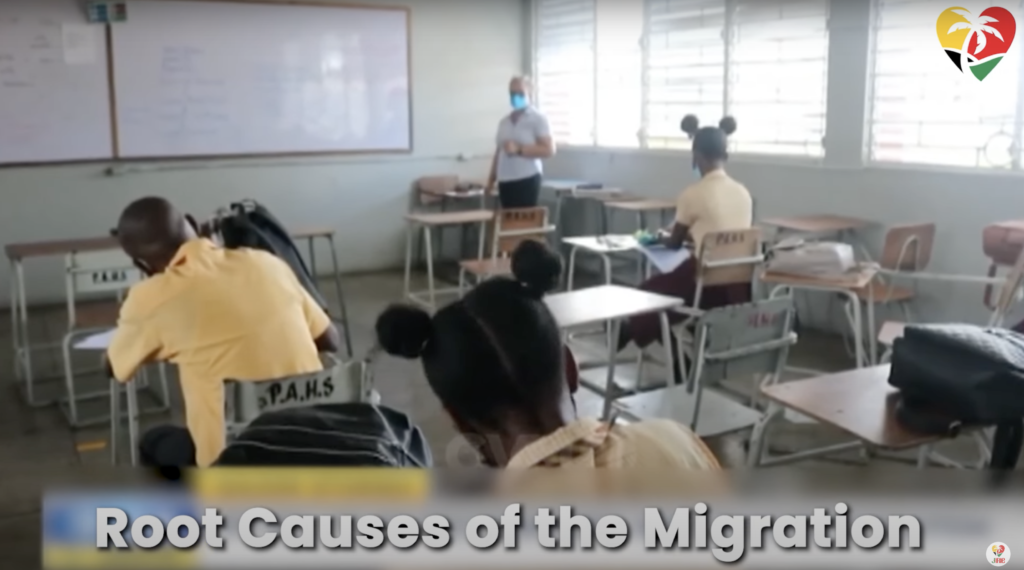
The reasons propelling this exodus are multifaceted, often deeply personal, and intertwined with both professional and societal struggles. Central to the issue is economic hardship. Despite their unwavering dedication and the pivotal role they play in shaping the future, many educators find themselves teetering just above the poverty line. The emotional and financial strain is palpable, with one educator poignantly remarking, “Years of dedication to teaching, yet the struggle, both emotionally and financially, feels insurmountable – I yearn to give my students everything, but sometimes there’s just not enough left.”
The global demand for Caribbean teachers is evident and the allure of greener pastures abroad is undeniable. Recruiters from developed nations like the US, UK, and Canada, recognizing the unparalleled passion, dedication, and unique skills of Caribbean educators, actively recruit them. The offers are tempting: Not just about significantly higher salaries but encompass opportunities for professional growth, advanced training, and a promise of an enhanced quality of life overseas. Recruitment workshops organized by these countries in the Caribbean are a testament to their allure, often seeing overwhelming attendance.
A Regional Phenomenon with Global Implications
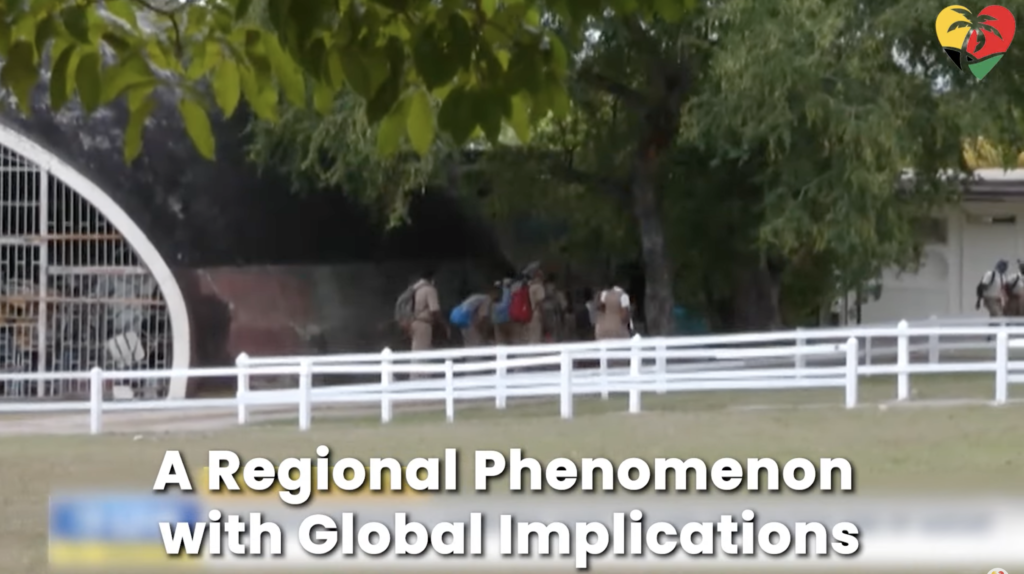
While Jamaica might be at the forefront of this crisis, it’s not alone. Other islands, including The Bahamas, The Cayman Islands, and the Turks and Caicos Islands, echo similar sentiments, witnessing their educators seek opportunities abroad. The ripple effects of this migration reverberate throughout the Caribbean, touching every corner and every soul.
The Students: Bearing the Brunt of the Impact
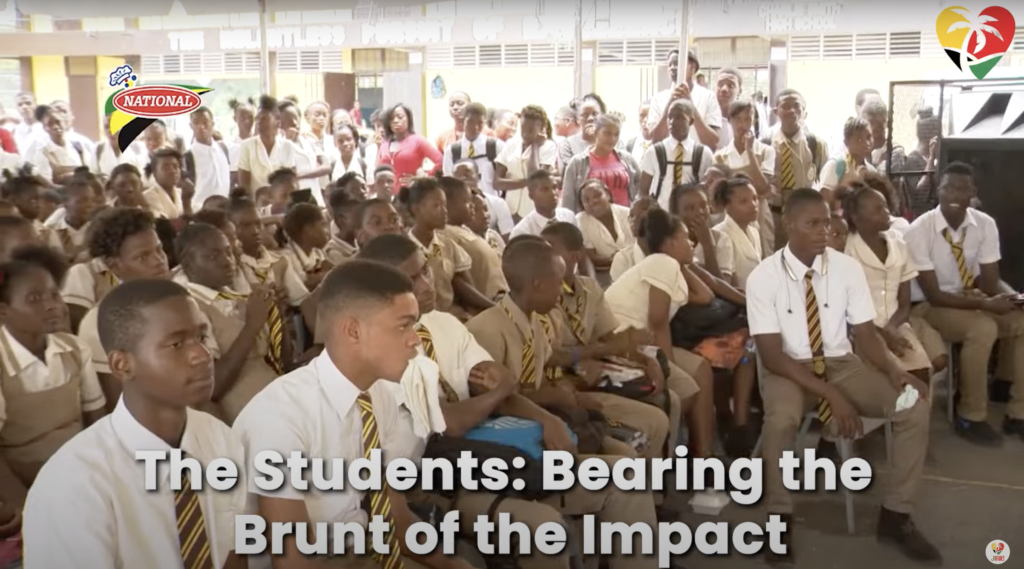
Our students, the torchbearers of the Caribbean’s future, are the most affected and bear the brunt of this migration. With the departure of seasoned educators, classrooms are increasingly overcrowded, and the once-renowned personal touch of Caribbean education is waning. The scarcity of specialized educators, especially in critical areas like mathematics and science, poses a significant threat to the region’s future, potentially leading to a dearth of professionals in essential sectors.
Community Response: Charting a New Course
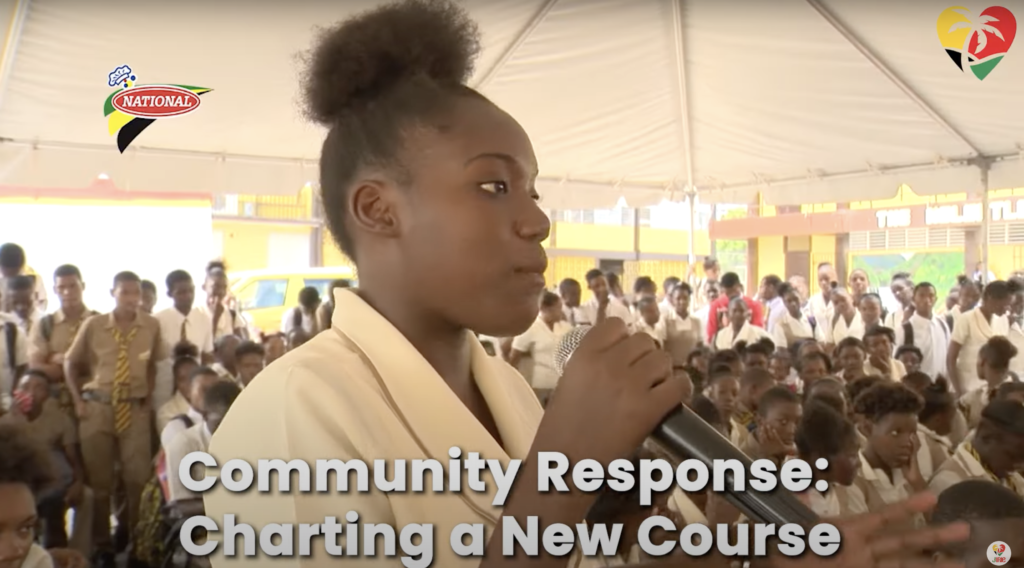
Yet, even in these challenging times, all hope is not lost. The indomitable Caribbean spirit is resilient. Communities are rallying, seeking sustainable solutions. Grassroots discussions are burgeoning, and policymakers are taking note.
Leighton Johnson of the Jamaica Teachers’ Association captures the essence of the sentiment, stating, “While we can’t control individual life choices, we can influence them.” He underscores the need for a comprehensive approach, emphasizing that solutions must extend beyond mere salary increments. “Our educators need resources, training, and above all, respect and understanding,” he adds.
As the Caribbean stands at a pivotal crossroads, here lies a challenge that beckons for immediate attention. There’s a collective realization that the value of teachers extends beyond the classroom, influencing the very fabric of Caribbean society.
Promisingly, initiatives supporting educators are emerging. Community programs that underscore the value of educators and equip them with essential tools are making a difference.
While this migration underscores significant challenges, these challenges also present opportunities. As a community, as a nation, as a region, a diaspora, we must come together, by investing in our educators with competitive salaries, continuous professional development, fostering a supportive environment, valuing their contributions, and ensuring they can thrive right here in the heart of the Caribbean, we can address this issue head-on.
The Solutions
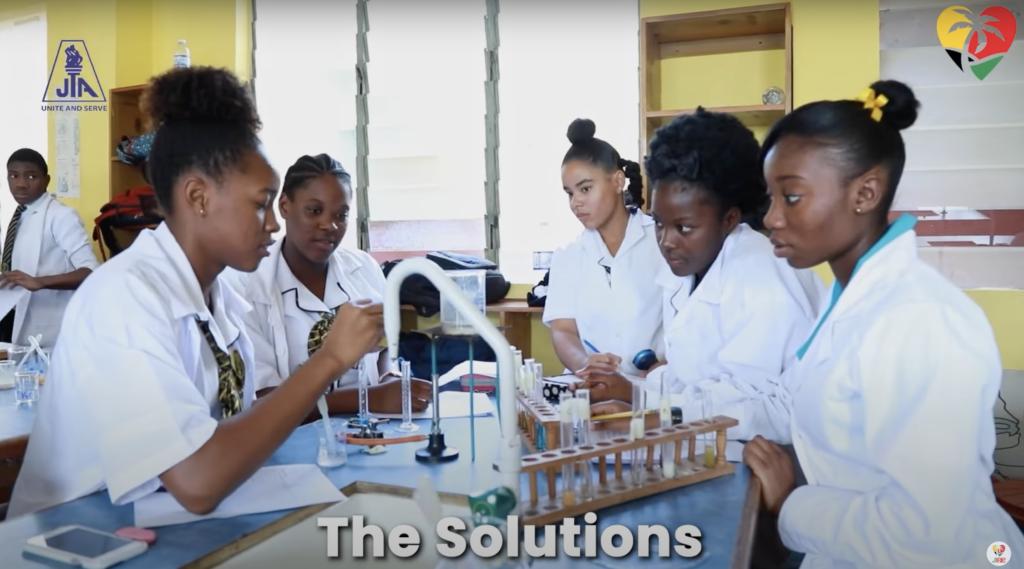
Collaborative initiatives between governments, communities, and educational institutions can formulate policies that not only retain our invaluable talent but also attract more.
Here at J-irie Caribbean, we believe that one of the primary solutions is offering continuous professional development opportunities. This will allow our educators to enhance their skills and grow in their careers without feeling the need to seek opportunities abroad.
Coupled with this, there’s a pressing need to provide affordable housing options or allowances for our teachers. By introducing low-interest loan schemes tailored for educators, we can make it easier for them to purchase homes or vehicles, anchoring them to their homeland.
But it’s not just about financial incentives. The well-being of our educators is paramount. Comprehensive health insurance and wellness programs can cater to their physical and mental health, ensuring they’re at their best both inside and outside the classroom. To further motivate them, bonuses or incentives could be offered to those who commit to staying for a certain number of years. This could range from end-of-term bonuses to scholarships for their children or even well-deserved sabbaticals.
Improving the daily working conditions is equally crucial. Our schools need to be equipped with adequate resources, ensuring teachers have access to necessary teaching aids and technology. Smaller class sizes and safe infrastructure can make a significant difference in their daily teaching experience.
Community engagement is the backbone of this effort. By fostering a culture where the community actively supports and appreciates its teachers, we can bridge the gap between educators and the community. Regular sessions where teachers and community members engage can lead to mutual understanding and collaborative problem-solving.

Feedback is gold. By establishing robust mechanisms where teachers can voice their concerns and suggestions without fear, we ensure that their voices are heard and acted upon. On the international front, it might be beneficial to engage in dialogues with countries that actively recruit Caribbean teachers. By setting limits or establishing systems that ensure the return of these teachers after a certain period, we can safeguard our educational future.
The Caribbean diaspora, spread across the globe, can play a pivotal role. Initiatives that engage them in supporting education back home, be it through mentorship programs, scholarships, or short-term teaching assignments, can be invaluable.
Public-private partnerships can usher in a new era for Caribbean education. Collaborations with the private sector can lead to funded educational initiatives, scholarship programs, and technology integration in schools. Furthermore, teacher exchange programs with countries that often recruit from the Caribbean can be a win-win. Teachers can gain international experience and then return, enriching our classrooms with new skills and perspectives.
Lastly, a clear career path for teachers can make a world of difference. Opportunities for promotions and leadership roles within the education system can motivate teachers to envision a long-term future in their home countries.
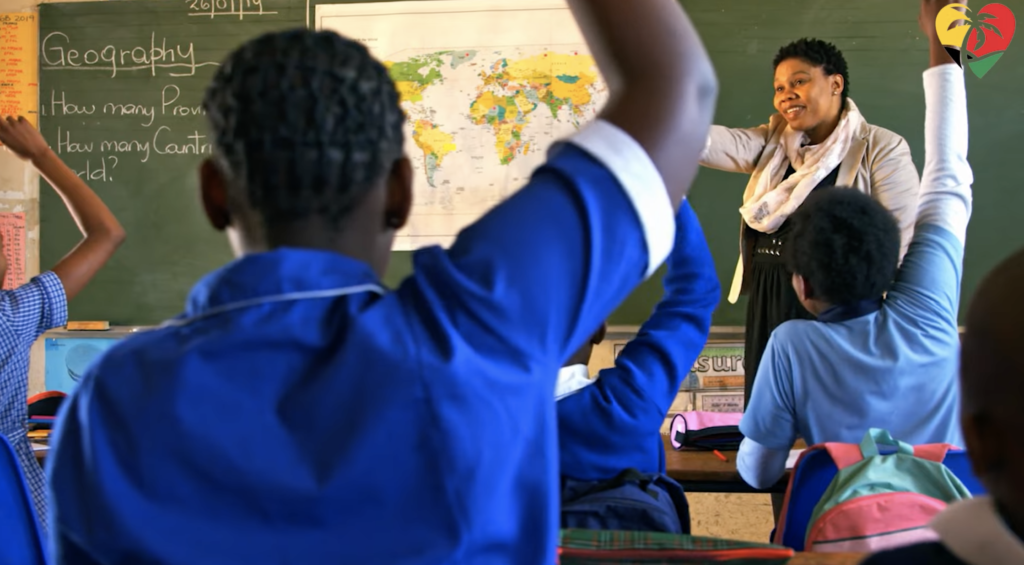
In essence, the Caribbean does indeed stand at a crossroads. By implementing these solutions, we can ensure that our educators, the pillars of our future, feel valued, supported, and motivated to stay. The future of the Caribbean hinges on the decisions we make today.
What are your thoughts on how we can support our Caribbean Teachers in the region? We can’t wait to hear your thoughts on the matter as we all seek solutions. Let us know in the comment section below.
As we stand at this crucial juncture on the precipice of change, the Caribbean’s resilience and unity will be its guiding light. This situation serves as a clarion call to value, support, and uplift those responsible for molding and shaping our future generations. By proactively addressing this educational migration with these tangible solutions, we are not merely safeguarding the future of our amazing educational system, but also preserving the rich essence and promise of the Caribbean itself.
The sun may be setting, but there’s always a new dawn. Let’s ensure our teachers are there to see it. The decisions we make today will shape the Caribbean’s future. It’s imperative that we ensure our educators, the heart of our islands, continue to thrive and inspire right where they are most needed.


